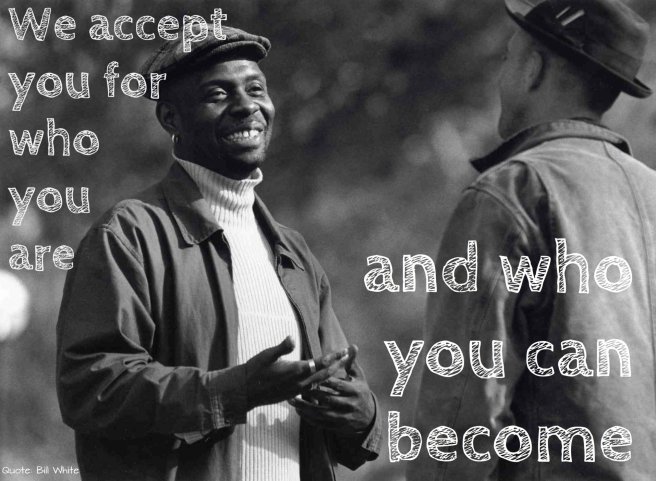I recently listened to an interview with Nadia Bolz-Weber. There were a lot of keepers in the interview (even for a non-believer). She’s described as a recovering drug addict. Her recovery shines through in this, “fake it till you make it” discussion:
Ms. Tippett: So a sermon of yours I wish I could have heard is “Loving Our Enemies Even If We Don’t Mean It.”
(laughter)
Ms. Nadia Bolz-Weber: Yeah, I think meaning it is overrated. I mean, I think …
Ms. Tippett: I think this is profound. I really do.
Ms. Nadia Bolz-Weber: No, I’m serious. Like, my gosh, if God’s going to wait till I mean it, that’s going to be a while, right? So I think that the key is praying for them, not like feeling warm feelings towards people who’ve hurt you or towards your enemy. I don’t think it’s about feelings. I think it’s about an action.
That was kind of neat, but what she said next really leapt out to me. [emphasis mine]
…I think that’s what the sort of love your enemies and pray for those who persecute you means. I will actually ask other people to do it for me sometimes, like it doesn’t always have to be us. And so it’s like this thing like I don’t think faith is given in sufficient quantity to individuals necessarily. I think it’s given in sufficient quantity to communities.
Wow. It reminds me of my persistent despair many months into my recovery and Dave H. telling me, “It’s okay if you don’t believe it’s going to get better, just believe that I believe it’s going to get better for you.”
This reminds me of an aha moment I had when listening to Bill White describe the recovery coaches of Project SAFE. I remember listening to him and thinking of the clients in those stories as having no protective factors–none!–only risk factors. He went on to describe the assertive support and engagement that these workers provided. I realized that these workers were becoming and creating protective factors in the lives of these women.
It also reminds me something my friend Ben often says, “Too often I fail to notice how much of the time I’m carried by others.”
What a gift it is for our profession to have access to a recovering community that, a group and one-to-one level, provides so much hope, faith and tangible support.

